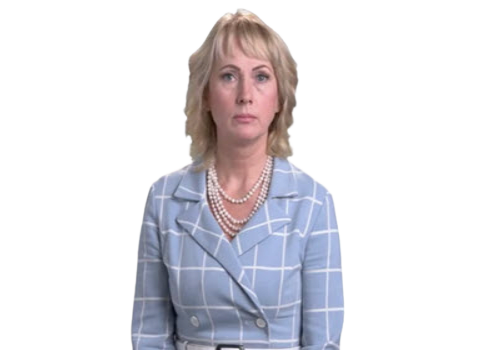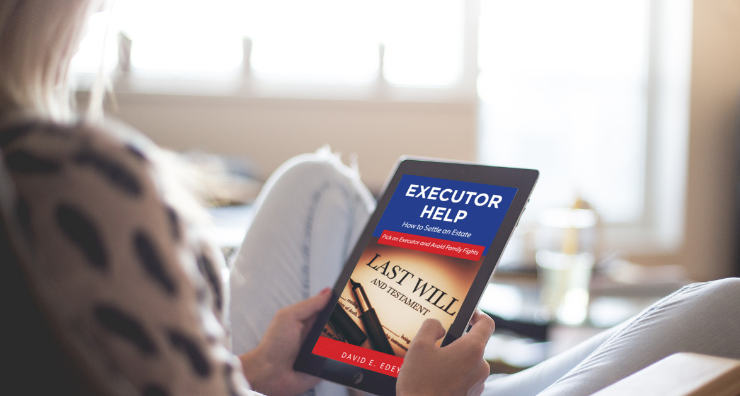Who to Choose as Executor? Here's What to Look For
- Home
- WHO TO CHOOSE AS EXECUTOR
Who to choose as executor is a very difficult question to answer.
Realize that you are asking someone to do you a very big favor.
And most people who end up with the job have absolutely no idea of what is involved.
Choosing the right executor is a crucial aspect of the estate planning process, as it directly impacts the efficient administration and distribution of your assets passing.
The executor plays a pivotal role in carrying your wishes outlined in the will. This includes managing financial affairs, settling debts, paying taxes and making sure there is a smooth transfer of property to beneficiaries.
An executor should be organized as they act as a fiduciary, and will not try to do the job alone. They should be able to work with an accountant, lawyer and financial advisor.
They will be the professionals who will navigate through the complex legal and financial matters, it is with their help these are the decisions that will impact the beneficiaries' experience and the overall success to settling the estate in hopefully a short period of time.
Selecting the right executor is an essential step in ensuring that one's legacy is preserved, and their loved ones are provided for according to their wishes.
So it is up to you to prepare your executor whoever you choose.
When trying to figure out who to choose as executor it is essential to assess their integrity, honesty, and ability to handle sensitive financial matters.
An executor should be someone who can be trusted to act in the best interests of the estate and its beneficiaries.
Look for a candidate who your feel is ethical and would be transparent. Consider their ability to handle dealing with beneficiaries.
Effective communication which means staying in touch is vital for an executor to navigate sensitive discussions and maintain open lines of communication with all parties involved.
By just staying in touch by email or Zoom to let beneficiaries know how the estate is progressing will go a long way to heading off any arguments or legal action.

Margaret's mistake
Margaret was a wealthy widow who had meticulously built a vast estate over the years.
When it came time for her to choose an executor, she made an unfortunate decision that would lead to unforeseen complications.
Margaret selected her youngest son, Daniel, as the executor of her estate.
Although Daniel was her beloved son, he lacked the necessary financial acumen and organizational skills to handle the complex tasks involved in estate administration.
Margaret overlooked these shortcomings due to her emotional attachment to him, assuming that familial ties would be enough to ensure a smooth process.
As the estate began to be settled it quickly became apparent that Daniel was ill-prepared for the responsibilities entrusted to him.
He struggled with understanding the intricacies of financial matters, missed important deadlines, and failed to communicate effectively with beneficiaries.
Disorganization and delays plagued the estate, causing frustration among family members and mounting legal complications.
The estate's assets were not properly managed, leading to financial losses, and disputes arose among beneficiaries due to the lack of transparency and clear communication from Daniel.
The settling of the estate contentious, straining family relationships and adding unnecessary stress during an already difficult time.
Eventually, Margaret's family had to seek legal intervention to remove Daniel as the executor and appoint a professional executor to salvage the situation.
The professional executor, with their expertise and impartiality, worked diligently to rectify the mistakes made and restore order to the estate.
Margaret's story serves as a cautionary tale about the consequences of choosing the wrong executor based solely on personal relationships.
It highlights the importance of objectively assessing a potential executor's qualifications, skills, and ability to handle the responsibilities associated with estate administration.
Making an informed decision based on competence rather than emotional ties can save families from unnecessary conflicts, financial setbacks, and prolonged estate administration processes.
Who to choose as executor? Do they have the time?
Picking an executor who can dedicate the necessary time and effort to settle the estate is very important.
The role of an executor has many responsibilities, An executor who is overwhelmed or unable to commit sufficient time may lead to delays, misunderstandings, and potential errors to getting the estate settled in a reasonable amount of time.
On average an executor will spend 100 hours and take 18-24 months to settle your estate.
Choosing someone who has the availability and willingness to invest the required time will be easier on everyone especially the beneficiaries.
A dedicated executor brings peace of mind to all involved, allowing for a smooth and effective execution of the estate plan.

3 FAQs on who to choose as executor
How do I choose the right person as an executor?
Guidance on factors to consider, such as trustworthiness, availability, financial competence, and communication skills.
Can I choose a family member or friend as an executor?
There are pros and cons of appointing a loved one as an executor, considering their relationship, qualifications, and potential conflicts of interest. Will other family members be offended by the choice. This is where you would need to have a family conversation explaining your choice. There may be a disagreement, it does not matter this your estate. Your choice.
Is it better to choose an individual or professional executor?
Comparing the benefits of appointing an individual executor versus hiring professional executor services, highlighting factors like expertise, impartiality, and convenience. While it be more efficient to have a professional executor you must take into consideration the cost involved. Research if the costs make sense to your estate.
- Home
- WHO TO CHOOSE AS EXECUTOR



